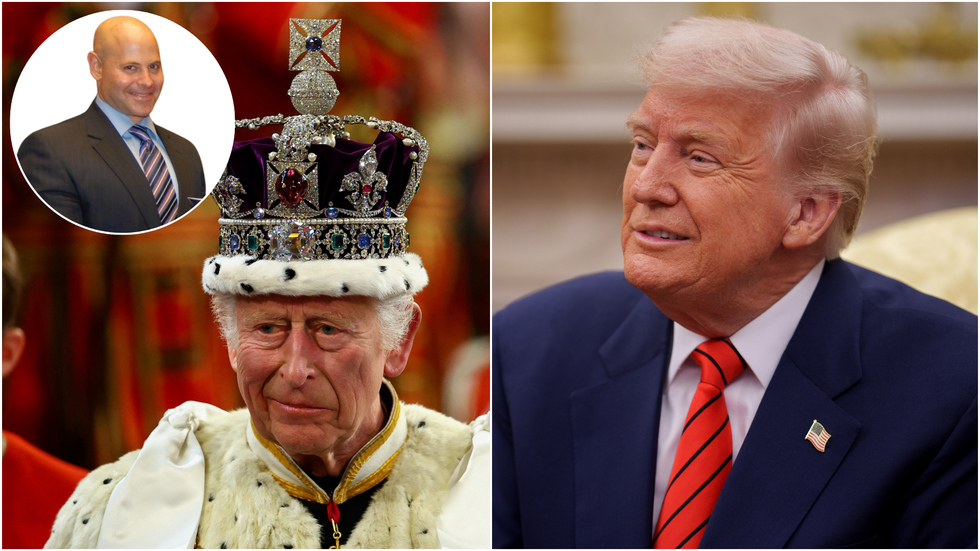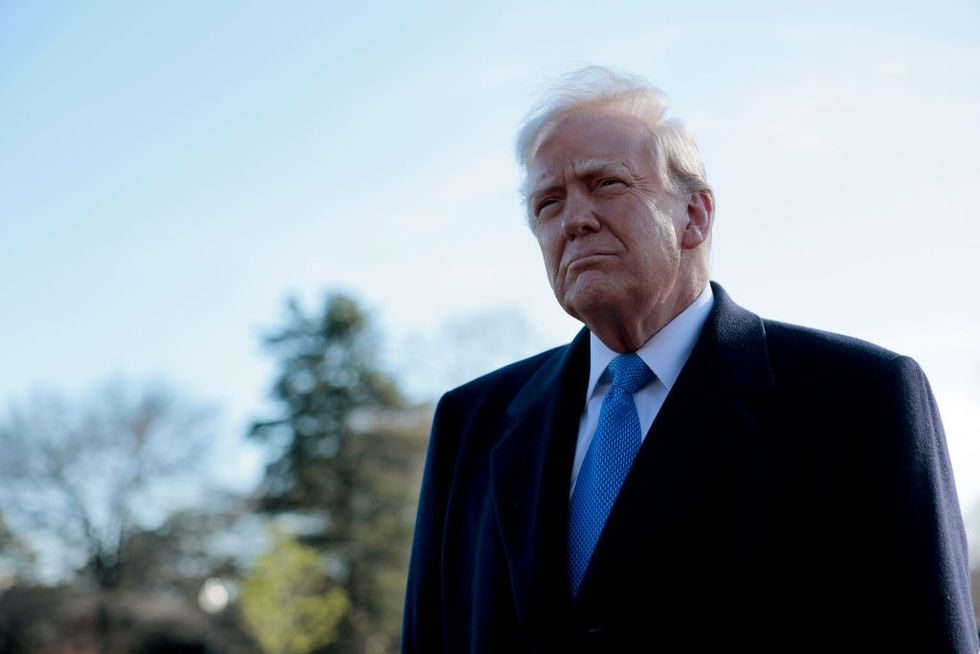The King and Donald Trump joining forces is a win all round, unless you're a Remainer - Lee Cohen
OPINION: The United States joining the Commonwealth as an associate member would be a game-changer, says Lee Cohen.
Don't Miss
Most Read
Trending on GB News
The idea of the King and Donald Trump joining forces to bring the United States into the Commonwealth as an associate member is more than a diplomatic footnote—it’s a potential game-changer. The Telegraph reported last week this proposal, quietly floated by the King and met with Trump’s enthusiastic “I Love King Charles. Sounds good to me!” on Trump's Truth Social Media, will take center stage during the President’s forthcoming UK state visit. This prospect is a vision of a Western powerhouse in trade and security that would be a win all around, that is unless you are a backward thinking, head-in-the-sand Remainer.
Historically, the US aligning with the Commonwealth seems an unlikely twist. America’s independence from Britain in 1776 was a rejection of imperial ties, yet the Commonwealth has since broadened its scope, embracing nations like Mozambique with no colonial past. Trump’s openness to this idea reflects his personal regard for the monarchy—a fondness evident from his warm royal engagements—and a pragmatic eye for strengthening UK-US bonds. For the King, it’s a calculated move to elevate the Commonwealth’s global influence, perhaps even as a buffer against Trump’s occasional musings about annexing Canada. The Commonwealth’s loose, voluntary framework fits Trump’s insistence on American autonomy, offering cooperation without entanglement—a bitter pill for Remainers who clung to EU bureaucracy.

The King and Donald Trump joining forces is a win all round, unless you're a Remainer - Lee Cohen
GB News/Getty Images
Economically, this partnership could forge a colossus. The U.S. economy, paired with the Commonwealth’s 56 nations, would form a trade bloc rivaling China’s might, a prospect that underscores Britain’s post-Brexit potential. For the UK, unshackled from Brussels, an American ally in the Commonwealth would turbocharge trade negotiations, securing markets and supply chains beyond the EU’s reach. While “associate membership” is undefined, it could usher in tailored trade agreements—perhaps tariff reductions or joint economic strategies—bolstering Western prosperity. Remainers, who fought to keep Britain tethered to a faltering European project, would find this transatlantic pivot a galling rebuke to their vision, proof that Britain thrives outside the EU’s shadow.
Security-wise, the stakes are even higher. With China’s Pacific ambitions and Russia’s European provocations, the West needs a unified front. A US-Commonwealth alliance would merge America’s military dominance with the Commonwealth’s strategic footprint, from Australia to the Caribbean, creating a security network dwarfing NATO’s reach. Trump’s no-compromise approach to defense pairs seamlessly with Charles’ diplomatic stewardship, offering a robust counter to global threats. This isn’t just about firepower—it’s about reaffirming shared values of freedom and law, values Remainers risked diluting in their EU loyalty. For them, watching Britain lead a Western resurgence alongside America, rather than trailing Brussels, would be an exasperating sight.

A Donald Trump pact with King Charles could create a Commonwealth powerhouse.
Getty Images
Challenges exist, naturally. In the US, isolationists might bristle at any international tie, while some Commonwealth purists could resist an American presence. But the Commonwealth’s flexibility neutralizes these concerns—this isn’t subordination, but partnership. The US Constitution permits such an arrangement, with the King’s role purely ceremonial, posing no legal hurdle. The lack of a formal “associate member” model is less a barrier than a canvas for Trump and King Charles to design a bespoke role, focused on mutual gain. Remainers, who once warned Brexit would isolate Britain, would see their predictions implode as the UK anchors a revitalized Anglo-American axis, a turn of events likely to leave them speechless—or fuming.
The King and the President have a unique chance to redefine the West’s future, blending American might with Commonwealth reach. For Britain, it would be triumph of sovereignty, a chance to lead rather than follow—a notion that would rankle Remainers who bet against Brexit’s success. Any American dissenters should view this as a natural extension of Trump's strength-through-alliance philosophy, a way to secure prosperity and safety without bowing to supranational overlords. The Commonwealth, under the King's steady hand, gains a superpower partner, amplifying its voice on the world stage.
A Trump-Charles pact could forge a Commonwealth powerhouse, dominating trade and security to fortify the West against its challengers. For we supporters of a strong, sovereign, independent Britain this would be a vindication of Brexit’s promise—global influence, not European subservience. For Remainers, it’s a nightmare realised: a thriving UK, hand-in-hand with America, proving their warnings hollow. This is the future worth building—one that would send a shockwave through the pro-EU camp, heads exploding in disbelief.







